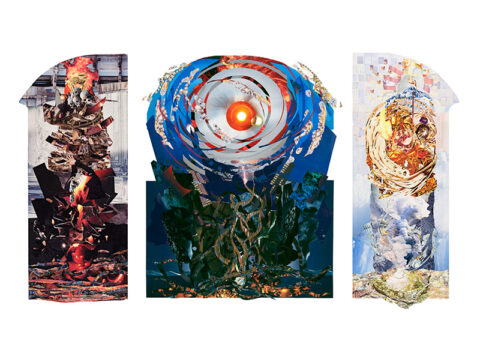From “A Conversation About Trees,” which appeared in the Summer 2021 issue of The Sewanee Review.
I set out here to construct an argument about “nature poetry,” in order eventually to suggest that the composition of poems about nature constitutes, in the present moment, a political act. I had a tidy thesis all set to be defended with the usual feints and thrusts. But reading over what I’ve written, I realize that I don’t believe it.
When I was young, Thoreau’s journals made intuitive sense to me:
Consider the turtle . . . Perchance you have worried yourself, despaired of the world, meditated the end of life, and all things seemed rushing to destruction; but nature has steadily and serenely advanced with a turtle’s pace.
Now this passage sounds like science fiction. Nature at the end of the world is not a turtle but a grizzly bear. We’re adding carbon to the atmosphere at a far greater rate than it took to produce the end-Permian extinction, 250 million years ago, when 96 percent of marine life was wiped out. Polar ice caps are melting six times faster than in the Nineties. American wildfires are burning at least twice as much land as they did forty years ago. The litany could go on—coral bleaching, ocean acidification, species loss, habitat loss, deforestation, coastal flooding, all mutually reinforcing through systemic feedback loops—and the figures would be out-of-date before this was published.
The thing is that talking about “poetry” makes me want to fucking scream. And literary criticism feels about as relevant as a fart in the wind. I was invited to write a “craft essay.” But what if the craft in question is worthless and about to go extinct, along with most other things? I’ve dedicated my life to the study of poetry, and here we are, at the end of the world, and I can recite a thousand different poems that speak to our present condition. In doing so, they console us—that’s the company line, anyway. I’ve parroted it myself.
I don’t believe it anymore, if I ever did. (I am never quite sure how much I believe most of the things I believe.) Yesterday I read that North America has lost nearly three billion birds since 1970. Today I learn that giraffe populations have declined almost 40 percent over thirty years. What am I supposed to do with that? What is poetry supposed to do with that? What does poetry have to do with that? Perhaps poetry was once a mouth, in Auden’s phrase, but mouths close.
When I was in junior high, my family moved to Colorado Springs. Our house sat near a golf course in the shadow of Cheyenne Mountain. I could see the entrance to NORAD from our front yard, an imposing tunnel burrowed deep into the heart of the rock. My friends and I once crept up to the barbed wire fence for a closer look, which drew a swift response from a couple of soldiers armed with machine guns. They shooed us away with an insouciance suggesting we weren’t the first teenagers to attempt to infiltrate our nation’s nuclear defense command. We’d all seen WarGames.
And we all knew that the place where we were standing was near the top of the Soviets’ list of first-strike targets. I used to say I found that comforting, since if Slim came to Pickens, at least we’d be spared the day after. We wouldn’t see the light that killed us, or feel the heat. The possibility hovered just beyond the edge of conversation.
The world is always ending, but now it has ended. No doubt it will go on having ended for some time. Poetry is an artifact of the world that has ended. It lies outside the structure of feeling adequate to an ended world. This is not a novel insight, because the world, as I said, is always ending. But it has never before had such force. The only argument I can offer in support of this claim is: look at the world, what is left of it.
Perhaps the true poverty I need to confront is that I continue to read and write poems though I can no longer say what, exactly, they give me or what I want from them. And if the answer is simply “a distraction from the end of the world,” that is a bad poverty indeed.
A poem by W. S. Merwin begins: “On the last day of the world / I would want to plant a tree.”









































































































